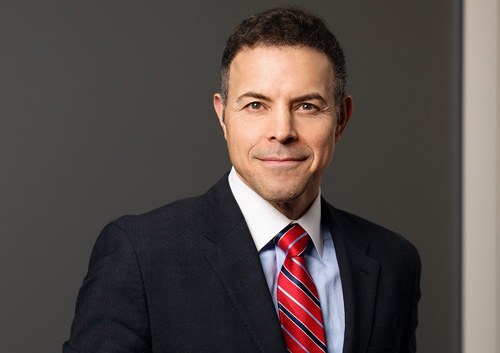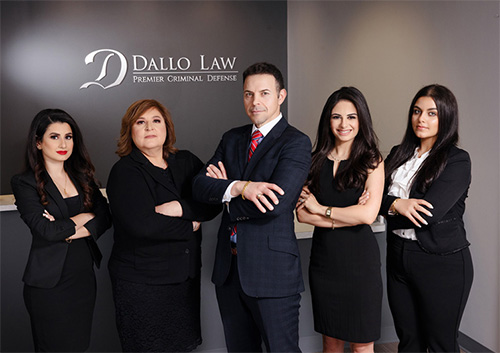One of the most common “moving traffic” offenses in Michigan is Unlawful Blood Alcohol Limit. In short, the offense consists of driving or operating a vehicle while intoxicated and with a certain amount of alcohol in your bloodstream.
A “UBAL” is a serious offense in Michigan. In the following article, we’ll discuss the penalties associated with a UBAL, common defenses for a UBAL, and some additional resources.
UBAL Defense Lawyers in Oakland County
Operating While Intoxicated charges, and the more specific liquor-related offenses can have serious ramifications on your rights as a citizen, including driving, voting, possessing a firearm and employment.
For aggressive and effective counsel, get in contact with criminal defense attorney J. Dallo of Dallo Law, P.C.. He has a thorough understanding of the training officers undergo in order to determine whether the driver is under the influence of alcohol, drugs, and/or alcohol drug-combinations. The attorneys at J. Dallo have years of experience defending people accused of OWI a proven track record of success.
Call us now at (248) 283-7000 to set up your first consultation. Dallo Law, P.C. accepts clients throughout the Oakland County and Macomb County area including Bloomfield Hills, Sterling Heights, Roseville, Pontiac, Troy, Royal Oak, Birmingham, Utica, Rochester, Novi and St. Claire Shores.
Information Center
- How Michigan Defines a UBAL
- Penalties for a UBAL in Oakland County
- Common Defense Strategies for UBAL Charges
- Additional Resources
- Hire a UBAL Defense Lawyer in Oakland County
What Does the Michigan Legal Code Say?
It is not illegal to drive after having some small amount of alcohol, provided you are of age. The legal limit of alcohol to have in one’s system while operating a vehicle is set out by Michigan State Code Section 257.625. This limit is 8 parts per thousand, or 0.08 grams per 100 milliliters of blood.
This number is typically measured as “blood alcohol count,” or BAC – a BAC of 0.08% is illegal for regular drivers. For commercial drivers, this limit is 0.04%. If you are pulled over and complete a breathalyzer test, or later a blood or urine test, then the police will be able to approximate your blood alcohol content.
Penalties
With no complications or added charges, an UBAL charge is a simple misdemeanor. However, multiple convictions can lead to much heavier penalties.
The following table is a schedule of misdemeanor convictions for UBAL convictions:
| 1st Conviction | Misdemeanor | Up to 93 days in jail |
| 2nd Conviction | Misdemeanor | Up to 1 year in jail |
| 3rd Conviction | Felony | Up to 5 years prison |
In addition to the above penalties, those convicted of an UBAL charge, may face the following consequences:
- Installation of an Ignition Interlock Device: An ignition interlock device takes your blood alcohol level before you are able to start your car. If your blood alcohol content is higher than the court-ordered standard, you will not be able to start your car.
- Loss or suspension of license: The court may suspend or revoke your driving privileges for a set amount of time. This could for weeks, months or years depending on the level of offense. For younger drivers, this could instead be a deferment against taking your driving test.
- Complete Substance Abuse Classes: Some court may order you to complete a series of substance abuse classes on alcohol and the dangers of its abuse.
- Paying fines: In addition to any court-ordered fines that may come with convictions, you may be required to pay for any damages caused as a result of impaired driving.
Common Defenses for an UBAL Charge
Challenging the Stop: Law enforcement officers must have a valid reason to stop a vehicle. If the stop was unlawful or lacked probable cause, it may be possible to challenge the validity of the stop. This could result in the exclusion of evidence obtained after the stop, such as the results of sobriety tests.
Questioning Field Sobriety Tests (FSTs): Field sobriety tests, such as the walk-and-turn or one-leg stand tests, are often subjective and can be influenced by various factors unrelated to intoxication. Challenging the accuracy and reliability of these tests can be a defense strategy.
Challenging Breathalyzer or Blood Test Results: Breathalyzer and blood tests are used to measure blood alcohol concentration (BAC). These tests can be affected by various factors, including calibration errors, improper administration, or physiological conditions of the individual being tested. An experienced attorney may challenge the reliability or accuracy of the test results.
Rising Blood Alcohol Defense: This defense argues that the defendant’s BAC was below the legal limit while they were driving but rose to illegal levels by the time they were tested. This can occur if alcohol was consumed just before or during driving.
Medical Conditions: Certain medical conditions or physical factors can affect the results of sobriety tests or breathalyzer tests, leading to false positives. Conditions such as acid reflux or diabetes can impact breathalyzer results, while physical disabilities may affect performance on field sobriety tests.
Improper Police Procedure: Any procedural errors or misconduct by law enforcement officers during the arrest or investigation could be grounds for dismissal or reduction of charges. This includes the transmission of evidence.
Necessity: In rare cases, a defendant may argue that they drove under the influence out of necessity, such as to avoid a greater harm or danger.
Additional Resources
Michigan OWI Laws – Visit the official website for the Michigan Legislature to learn more about operating a vehicle while intoxicated (OWI) laws and penalties. Access the site to view the various types of OWI offenses, what additional sanctions can be added to your sentence, and the elements required by Michigan state to convict someone of OWI.
Getting Your License Back | SOS – Visit the official website for the Secretary of State Jocelyn Benson to learn how you can get your license back if you were accused of OWI. Access the site to learn how to appeal for a driver license restoration, fees required to reinstate your license and what to do when preparing for your driver license appeal hearing.
Substance Abuse Prevention Programs – Visit the official website for Oakland County to access some substance use prevention programs including CATCH My Breath, Vape 101, and Michigan Model for Health.
Hire a UBAL Defense Attorney in Oakland County
Have you been accused of an UBAL in the Michigan Bloomfield Hills area? Attorney Dallo and his team are passionate about what they do and treat every individual case as a priority.
Don’t wait another moment to start building your defense with attorney Dallo. He will do everything in his power to ensure they get the best possible result for their case. Set up your first consultation with Mr. Dallo by calling (248) 283-7000.
Dallo Law, P.C. accepts clients throughout the greater Oakland County and Macomb County, Michigan area.









